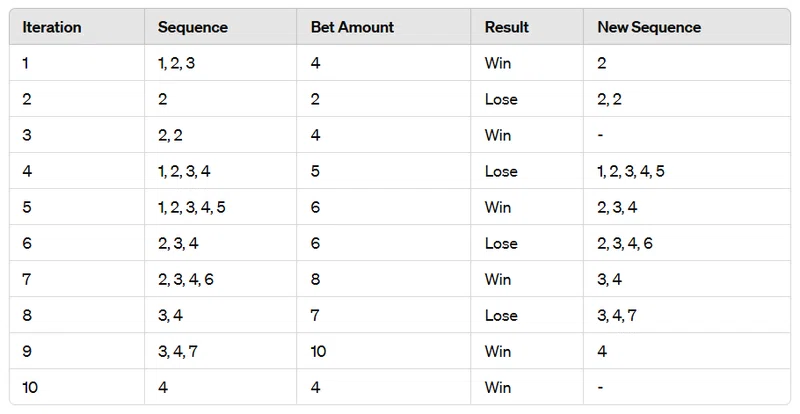Description of Monte Carlo methods that can be used as a system lot sizing for Forex trading – Miscellaneous – June 2, 2024

What is it Monte Carlo method
The Monte Carlo method is a popular betting strategy that uses probability and statistical models to make informed betting decisions.
Named after Monaco’s famous Monte Carlo casino, the method was first developed by mathematicians Stanislaw Ulam and John von Neumann in the 1940s.
It runs simulations to predict the probability of different outcomes from a random process, making it a useful tool for both gamblers and professionals in a variety of fields.
How the Monte Carlo method works
-
initial sequence:
-
It starts with a predefined set of numbers. For example, let’s start with the order 1, 2, 3.
-
-
Calculate bet amount:
-
Results evaluation:
-
repeat:
Extended example
To illustrate how Monte Carlo methods work across multiple iterations, consider the following example.

In this example, each iteration adjusts its order based on the outcome of the bet. The goal is to continue this process until the sequence is fully resolved, ideally resulting in a net profit.
Advantages of Monte Carlo Methods
-
statistical edge:
-
crisis management:
-
versatility:
-
This method is not limited to betting. It is widely used in finance, engineering, and project management to model and manage risk.
-
Challenges and Considerations
-
complexity:
-
Resource intensive:
-
data quality:
conclusion
Monte Carlo methods utilize statistical analysis and probability simulations to provide a powerful framework for making informed betting decisions.
Although it can be complex and resource-intensive, its ability to provide deeper insight into potential outcomes is an invaluable tool for bettors seeking a strategic advantage.
For more information and real-world examples, check out these resources: opportunity for the underdog, gambler’s Salon, American gambling, and pinnacle.
Following this approach will allow you to make your bets more strategic and potentially yield greater rewards, as well as manage your risk more effectively.



